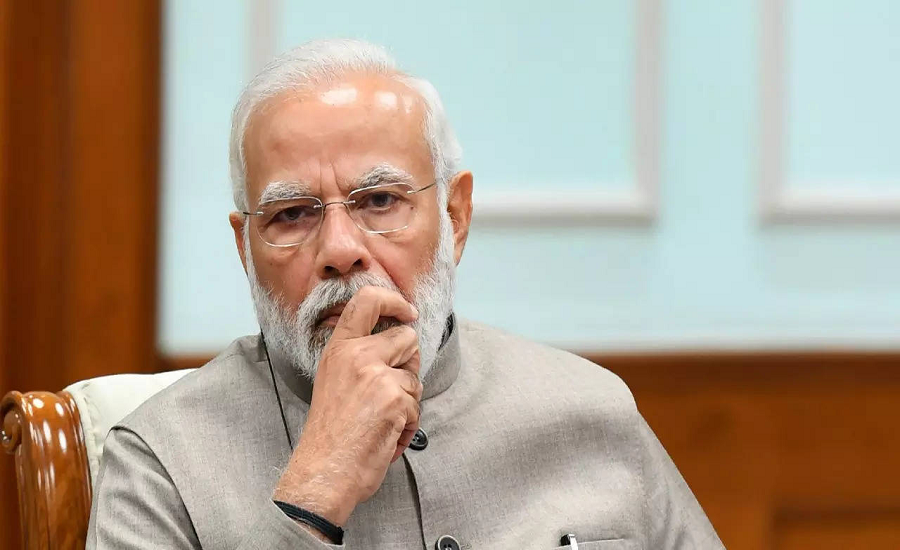A person who can speak up to uphold country’s unity on a relatively minor issue can’t remain indifferent when the country’s unity is at stake, especially so if the person happens to be the prime minister of the country.
Zafar Aafaq | Clarion India
A few days ago, Prime Minister Narendra Modi waded into an unseemly debate on Hindi to pacify those who oppose its alleged undue dominance over other languages. He said the Bharatiya Janata Party (BJP) gives importance to all languages and considers Indian languages the soul of the country and a link to a better future.
Kannada actor Kicha Sudeep, who ignited the debate through a tweet last month that “Hindi is no more the National Language”, praised Modi’s stance. “It was an honour and a privilege to see certain lines come out of the Prime Minister’s mouth. Everybody who looks upon their language with regard and respect, it’s an overwhelming thing to see him speak this way,” he said in an interview with NDTV.
Modi’s statement, which was in fact an intervention to put a lid on the growing disenchantment among people from different linguistic backgrounds and regions, is welcome. The prime minister has at least spoken on an issue, albeit belatedly. But why he has chosen to remain silent on another pressing issue threatening to tear apart the social fabric of the country remains a mystery.
The issue of Gyanvapi Mosque is dominating the headlines after a court-ordered survey claimed that a shivling was found inside the mosque opening a Pandora box. Taking a cue from the surcharged atmosphere in the country over the issue, Hindutva forces launched a relentless campaign to stake claim to other prominent places of worship of Muslims. They have gone on a spree to move courts and administration to convert mosques into Hindu temples. They won’t even spare historical monuments.
Unfortunately, the courts too turned out to be pliant to the mischief mongers. Instead of putting an end to such demands they are allowing the issues to linger on by passing orders for surveys and extending hearings despite a clear law of 1991 that bars changing the religious character of places of worship.
Such issues evolve from the idea of exclusion ingrained in the Hindutva politics where Islam, Muslims and their culture is foreign, not part of Indian culture. What’s more, every marker of the religion and culture is treated as alien to be either suppressed or completely obliterated. In fact, the monuments and mosques made by Mughals or the rulers before them are projected as symbols of oppression on Hindus by Muslims ignoring the fact that Islam today is an integral part of the present day idea of India. Its culture is ingrained in the culture of this country.
Equipped with well-oiled troll machinery, the Hindutva brigade can twist historical facts to their liking. But they can’t be overlooked since the motive behind their propaganda goes beyond staking claims to mosques and monuments from the bygone era. It, in fact, smacks of a sinister design much more diabolic than what it appears to be on the outset. Their goal is to create an atmosphere of violence and mistrust by creating schism between communities. Modi’s silence at this crucial juncture is intriguing. No doubt he is a proponent of Hindutva, but he is also the prime minister of this country.
A person who can speak up to uphold country’s unity on a relatively minor issue can’t remain indifferent when the country’s unity is at stake, especially so if the person happens to be the prime minister of the country.
Coming back to the row over Hindi, Sudeep’s refusal to accord the dialect the status of the national language evoked sharp reaction from Bollywood star Ajy Devgan who directly responded on Twitter asking Sudeep why there were “regional language movies dubbed and released in Hindi.” He even went on to assert: “Hindi was, is and always will be our mother tongue and national language.”
The debate which was originally triggered by Home Minister Amit Shah by asking people from different states to talk to each other in the language of India which he said was Hindi, an alternative to English. Shah said that it was time to make Hindi an important part of the Unity of the country.
It did not go down well with Opposition parties, activists and artists from different states – particularly from the south –who called it “Hindi imperialism”. They said that imposing Hindi on those who do not know Hindi was akin to promoting divisions.
Though may have an academic value, the debate over the language was neither of national importance, nor was it posing an immediate threat to the nation’s sovereignty and integrity like the row over places of worship warranting direct intervention of the prime minister of the country. Yet PM Modi chipped in the debate with his unsolicited comment.
Modi’s contention that he and his party consider Indian languages the soul of the country should be taken with a pinch of salt as their antipathy towards Urdu is no secret. Against this backdrop, the question arises if as he said he and his party see the soul of India in every language, why can’t he see the soul of India in every culture and religion of the country.


